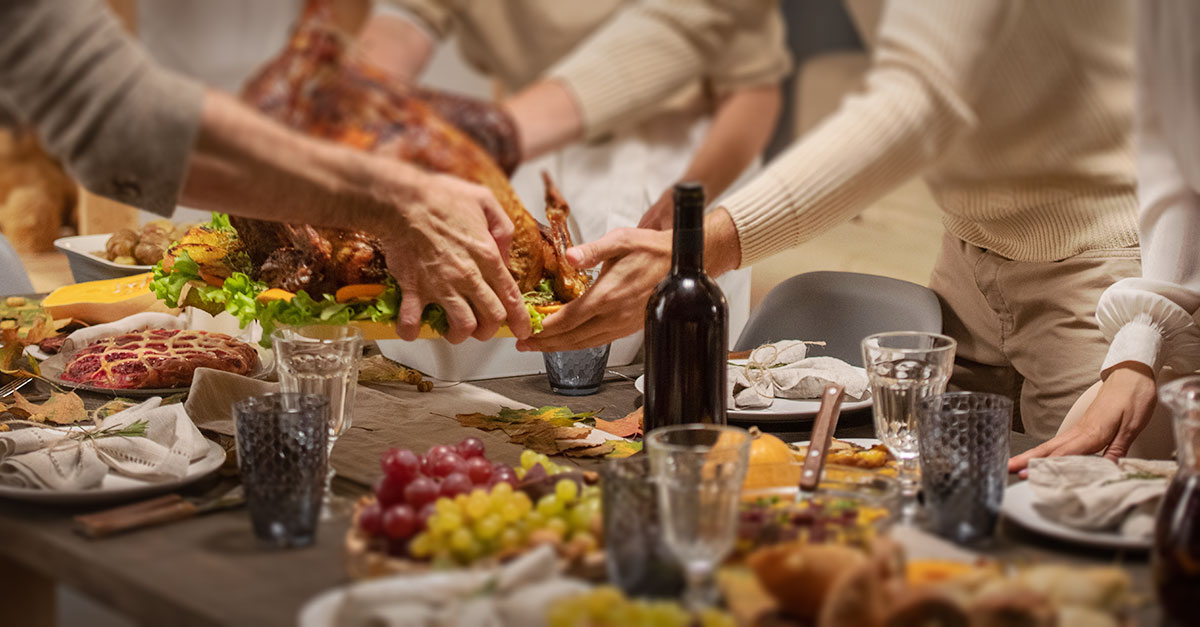
Thanksgiving is right around the corner. For many families, Thanksgiving is a relaxing day centered on family fun and gratitude for the blessings of the year.
While some families will do their best to avoid discussing anything remotely political, many of us will likely jump right in. As an elected township supervisor, I am always eager to debate policy or talk about general political trends I’m seeing. But I also know that these family conversations can quickly become impassioned, and if we are not careful, we can end up spoiling the day.
Remember that there is no obligation to discuss politics at your family gathering. And you are no less of a citizen if you decide to keep Thanksgiving politics-free this year. But if you do get pulled into (or decide to initiate) a conversation about politics, here’s my advice for how to navigate this with grace.
Three Tips for Thanksgiving Politics
1) Politics AFTER Eating
Reserve the politics stuff for after the family meal. Eating together is one of the primary ways that we nourish bonds. The dinner table is a great place to share memories, reflect on blessings, and catch up on life events. It is worth striving to keep this time and place set apart from conflict as much as possible. If a family member is trying to pull you in, gently but firmly request that this conversation be saved for after the meal, and follow that up by asking them a question such as, “How is your work going?”
2) Be Mindful of Everyone
Be mindful that what feels like a healthy debate for you and your conversational partners can feel upsetting or exhausting for others present. If a conversation is stretching on or is getting heated, consider taking it outside on a walk or finding another room to go where you are not imposing the discussion on other family members who may not be enjoying it. Also, try to recognize when a conversation has run its course. A disagreement can be productive without needing a total resolution. It’s totally okay, and often prudent, to reach a point where you can say something like, “I’m grateful for hearing your perspective: I don’t think we’ll reach an agreement on this point, but I value you as a person, and I’m glad we could explore this together.”
3) People Over Politics
Remember that every person is much more than the sum total of their political beliefs. In the midst of a strong disagreement, it’s easy to forget that you are talking with another person – someone who experiences all the joys, sorrows, fears, and hopes that define our human condition. A helpful exercise can be to ask questions like, “What part of your experience resonates with this idea?” and “How might this specific abstract policy that we are discussing tangibly affect your life?” In addition to potentially further clarifying why your family member holds the belief they do, questions like this can also help you both remember that you are not just a bundle of ideas, you are flesh-and-blood human persons trying to make sense of the world together.
I hope that this Thanksgiving, you and your family will get the much-needed opportunity to rest, reflect, and celebrate each other. Try to give yourself and each other a lot of grace this year. Seek out opportunities to serve each other, share little observations about what you appreciate about each of your family members, and build new memories together.
Further Reading
What does it mean to be a good citizen? What are our obligations to ourselves and others? How should we think about our civic duties and opportunities? Check out my four-part series on the topic.




Leave a Reply